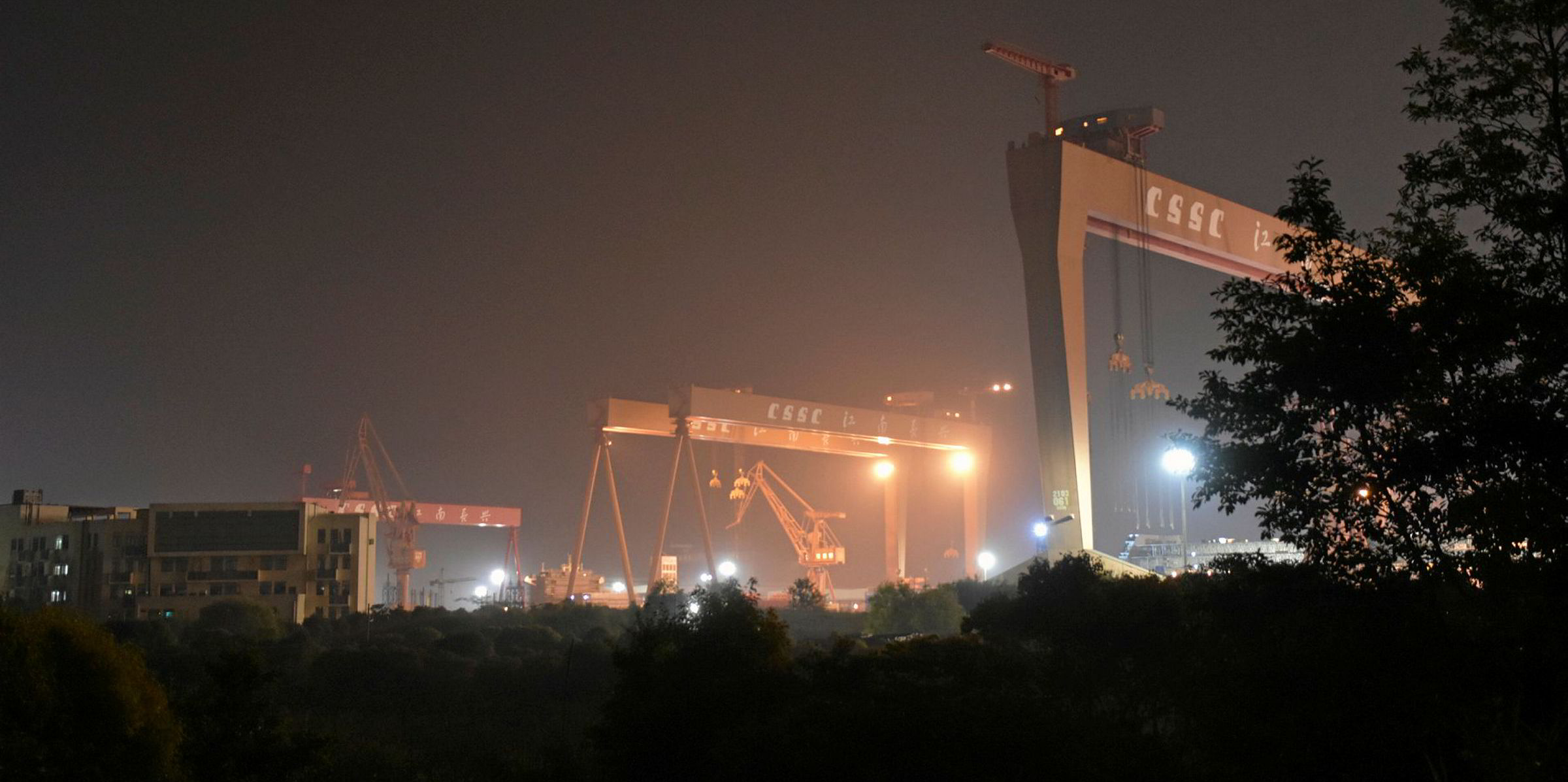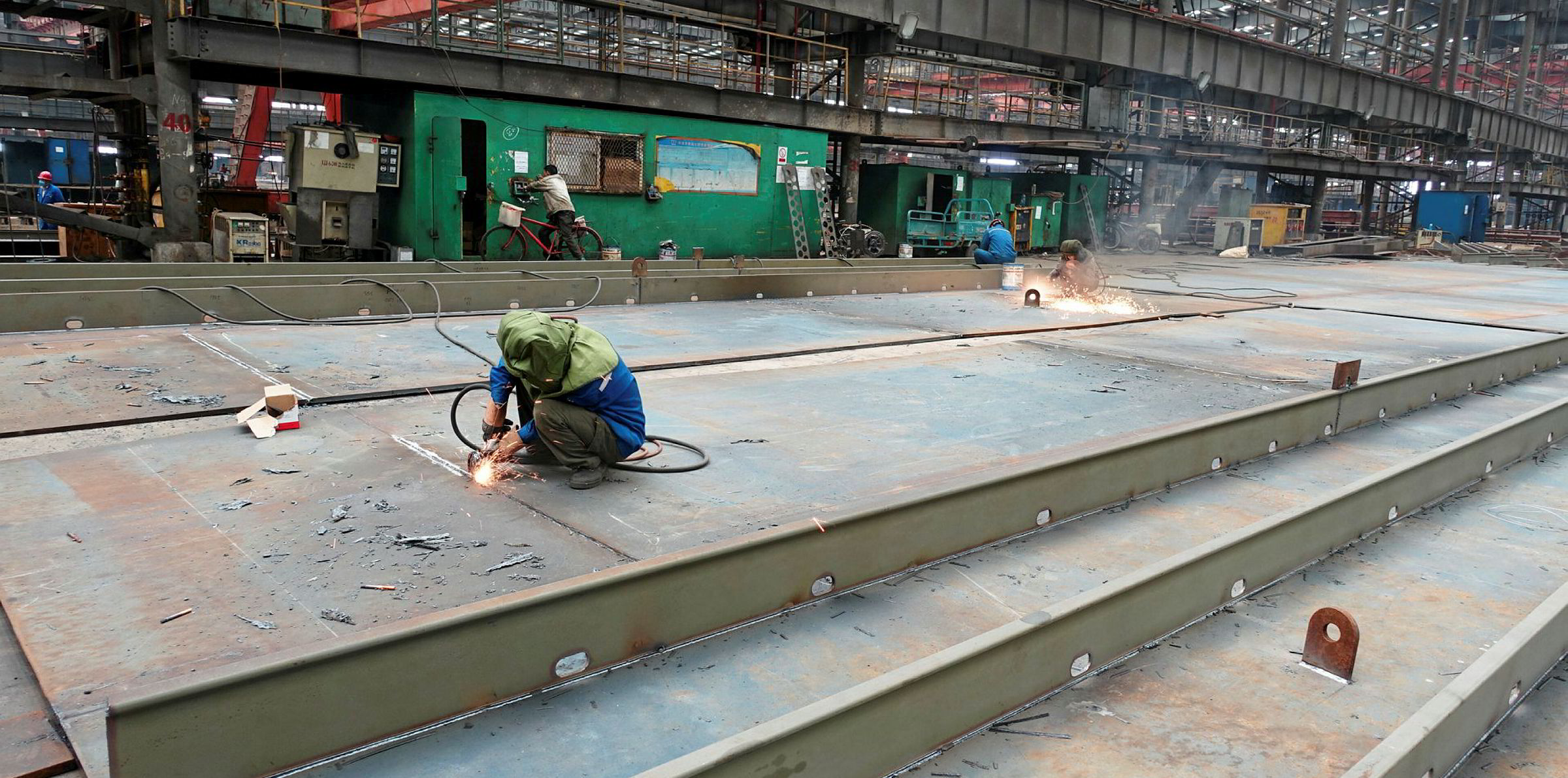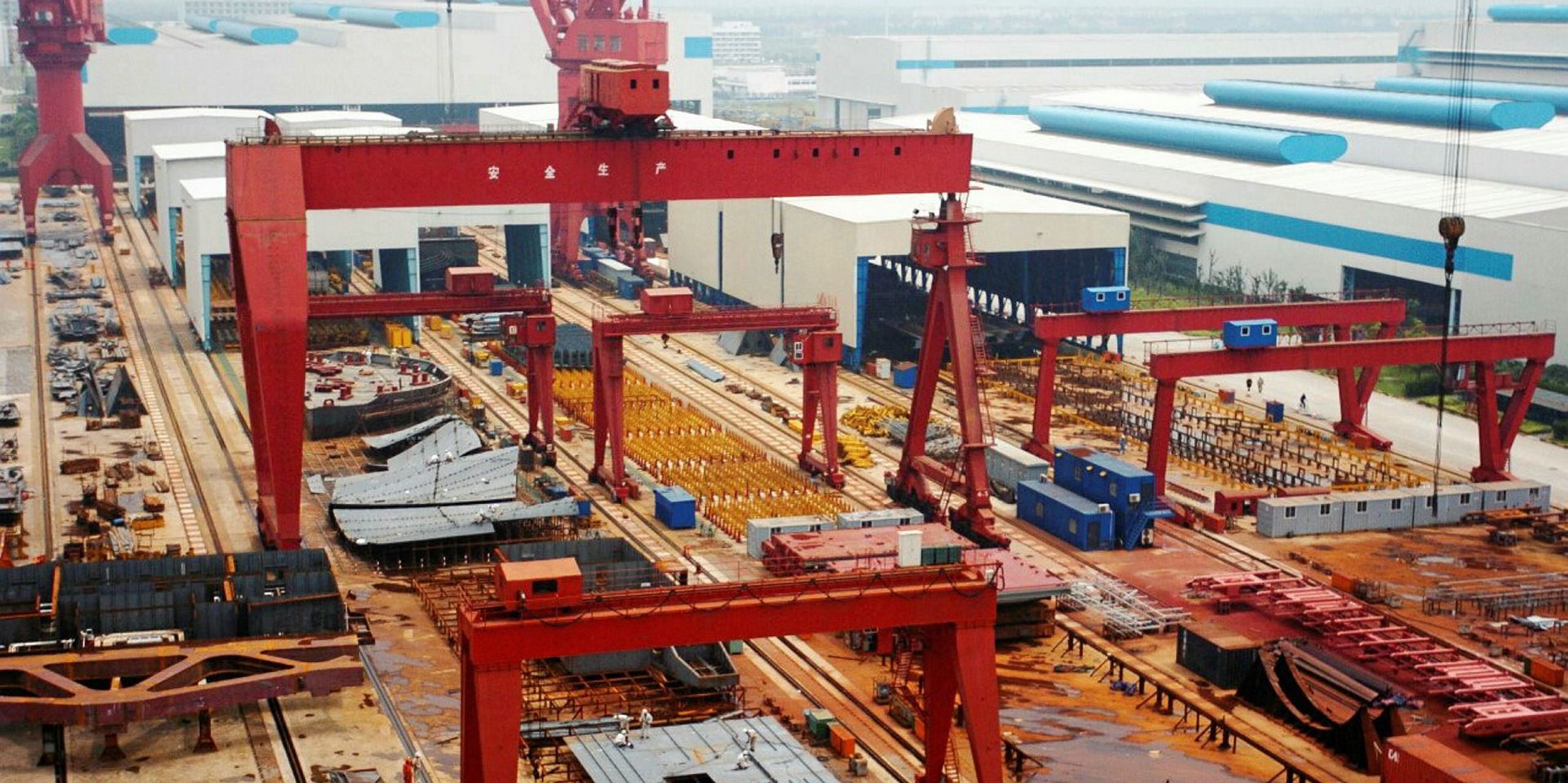The largest trade group of Chinese shipbuilders has warned many newbuildings in China would fail to meet the IMO’s Goal-based Standards (GBS), which will be fully implemented this July.
In a web circular, China Association of the National Shipbuilding Industry (Cansi) said yard delays due to the coronavirus outbreak would be lengthened by the upcoming rules.
“In China, there are many newbuilding orders that are not designed based on the GBS,” Cansi said. “They were originally due to be delivered by July, but it’s highly likely that the deadline would be missed.”
Having slowly brought their production back online after the extended Lunar New Year holiday, Chinese shipbuilders are not expected to operate at full capacity for at least some weeks, due to limited labour.
Travel restrictions remain across China to contain the epidemic, even though Beijing has ordered Chinese companies to resume working to kick-start the economy.
“Based on the regulations, the designs will need to seek new approvals and be modified accordingly if the ships cannot be delivered on time. The consequence is serious,” Cansi said.
In such a scenario, newbuilding deliveries could face months of delays or even longer, possibly leading to the cancellation of orders and heavy compensation costs.
Possible immunity
As part of the regulations of International Convention for the Safety of Life at Sea (Solas), the GBS is a set of safety, environmental and security standards for bulkers and tankers of 150 metres in length or more, which apply to newbuilding contracts from July 2016 and deliveries from July 2020.
While flag states can grant exemption to some other Solas rules when “unforeseen delay in delivery of ships” occurs on a case-by-case basis, it is not certain whether such immunity can be extended to the GBS.
“If a shipbuilding cannot not delivery a ship not designed on the GBS before July, it should tell the shipowner in time and declare force majeure and contact the classification society for the next step,” Cansi said.
In practice, classification societies are expected to examine whether the newbuilding standards are met, following harmonisation efforts of the International Association of Classification Societies when developing common structural rules earlier this decade.
“If a vessel’s delivery is delayed due to the coronavirus or for any other reasons, we would look at the circumstances and work with the flag to see if there is a case for force majeure or another legitimate reason to grant an extension,” Lloyd's Register’s chief surveyor Iain Wilson said.
Force majeure terms
However, legal experts Ik Wei Chong, Nicholas Lum, Sapna Jhangiani and Paul Collier at Clyde & Co suggested yards may face difficulties exercising the force majeure clause.
“If remedial work is required to make a vessel compliant with the GBS, then it will be difficult for the shipyard to rely on any force majeure provisions, not least because the additional remedial work would have likely been caused by the shipyard's failure to meet its own construction deadline,” the experts said in a joint note.
“Accordingly, any delay to delivery caused by the need for additional work to comply with the GBS is likely to constitute a non-permissible delay entitling the buyer to claim liquidated damages, and also gives rise to the risk of cancellation by the buyer for excessive delay.”
Watson Farley & Williams said all contract terms — including the force majeure clause — should be taken into consideration before a yard considers the next move.
“The first step is a thorough review of your commercial agreements so that you know exactly what your contractual position is,” its partner Toby Royal said.
“It will be necessary to review all the agreements to determine that — just considering the force majeure provisions in one contract would be unwise.”
“Once you are aware of the issues, it would be prudent to engage with your commercial counterparts at an early stage.”






